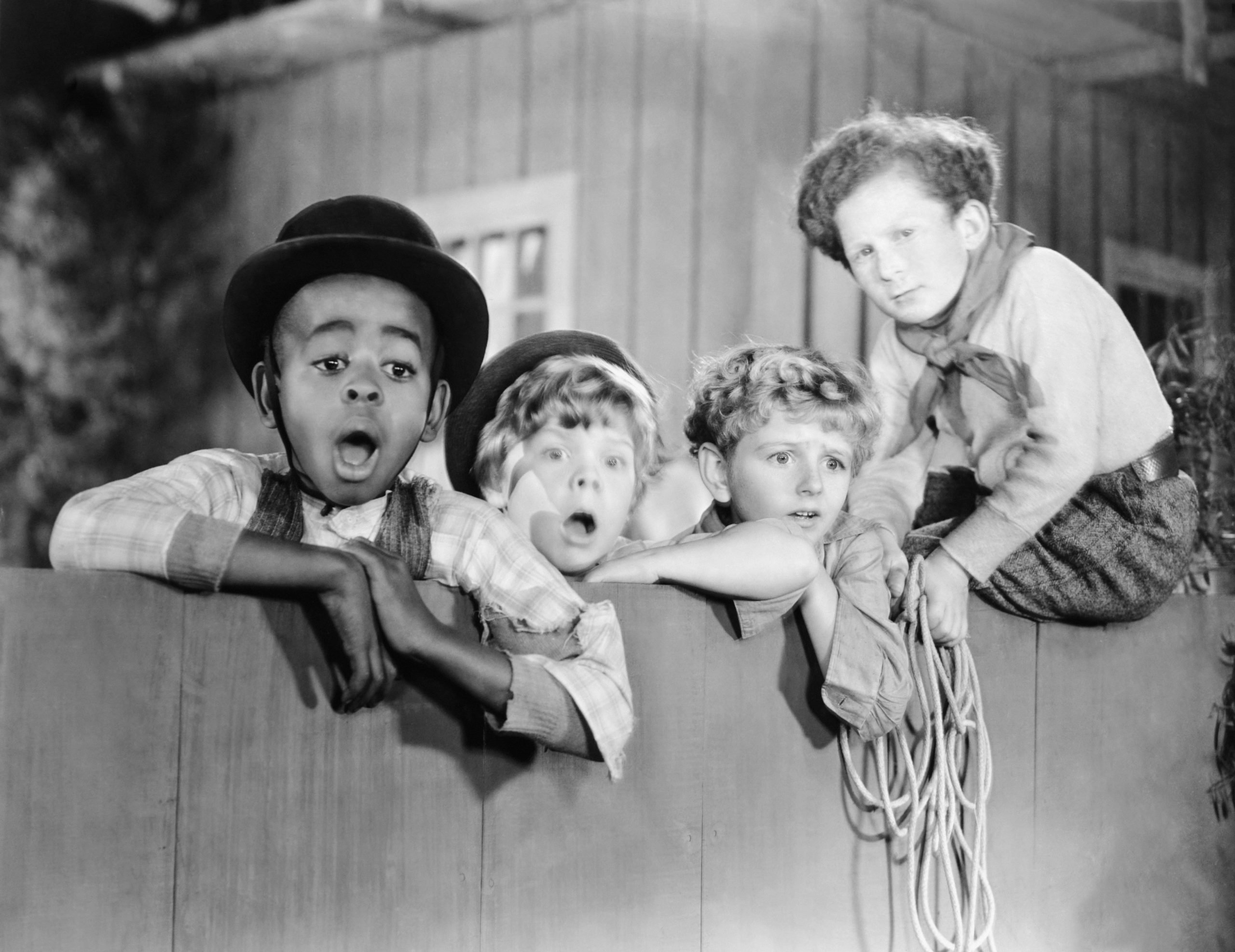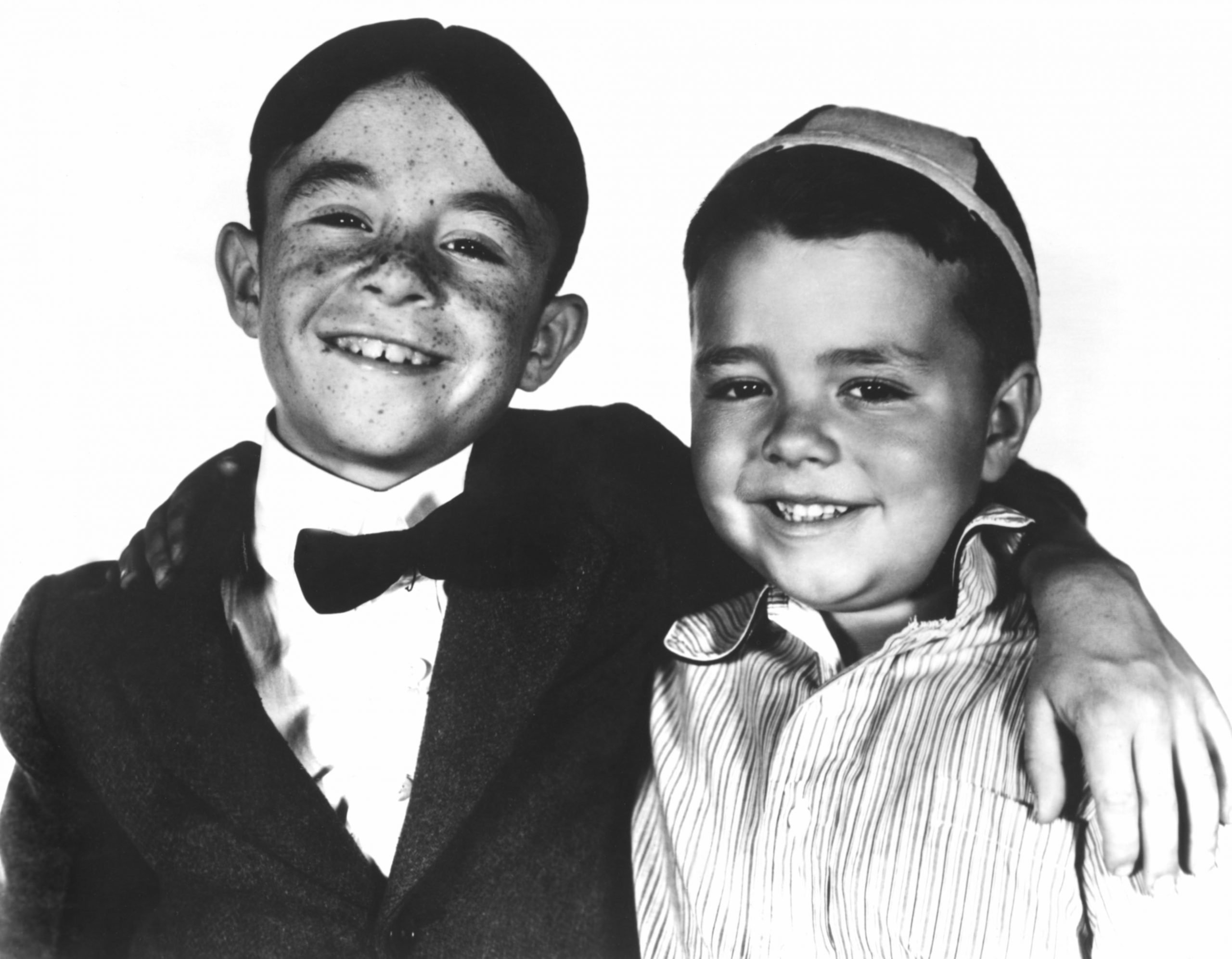Little Rascals: Tragic Lives & Untold Stories
Did you know that the heartwarming adventures of "The Little Rascals," which captivated audiences for decades, were, sadly, interwoven with tales of hardship and tragedy for many of its young stars? The world of "Our Gang," while brimming with laughter and innocent fun, concealed a darker side, a reality where the bright lights of Hollywood often cast long shadows on the lives of those who shone so brightly within them.
The "Our Gang" series, also affectionately known as "The Little Rascals," emerged as a series of comedy short films. Featuring a cast of diverse, often underprivileged children, the shorts chronicled their daily escapades, from mischievous schemes to heartfelt friendships. Produced by Hal Roach and MGM, the series delighted audiences from 1922 to 1944, evolving with different casts and directors to reflect the changing times.
The very essence of "Our Gang" was its cast. While the names of the original rascals have become legendary, their stories are often tinged with sorrow. The following table provides biographical and professional information for some of the key figures in the "Our Gang" universe.
- Where Is Leslie Sansone Now Whats Her Current Status
- Birdmans Net Worth In 2024 How He Built His 150 Million Fortune
| Name | Birthdate | Role in Our Gang | Known For | Later Life & Fate | Reference |
|---|---|---|---|---|---|
| Ernie "Sunshine Sammy" Morrison | December 20, 1904 | Featured in early silent shorts | One of the first Black child actors to gain prominence in Hollywood | Morrison continued acting but never achieved the same level of fame. He faced financial struggles and died on July 25, 1989, at the age of 84. | Wikipedia |
| Jackie Condon | March 25, 1918 | Appeared in early silent shorts | Known for his comedic timing and expressions. | Condon had a relatively short career as an actor, and later he was involved in business and had a normal life. He died on August 20, 1977, at the age of 59. | Find a Grave |
| Peggy Cartwright | November 17, 1912 | Featured in early shorts | Played various roles, often the female lead in the earlier shorts. | Cartwright did not pursue a lengthy career in show business after "Our Gang." She lived a private life, and she died on June 12, 1983, at the age of 70. | IMDB |
| Monty O'Grady | 1910 | Appeared in early silent shorts | Known for his distinctive look and participation in various routines. | O'Grady largely withdrew from acting. He died in relative obscurity. | IMDB |
| Allen "Farina" Hoskins | August 9, 1920 | Played the character "Farina" | One of the most recognizable faces of the early series, known for his comedic antics. | Hoskins had a long and varied career that included work as a film editor and as an educator. He died on July 26, 1980, at the age of 59. | Wikipedia |
| Carl "Alfalfa" Switzer | August 7, 1927 | Played the character "Alfalfa" | Known for his singing and comedic performance | Switzer faced many struggles, including financial and legal troubles. Tragically, he died on January 21, 1959, at the age of 31, after being shot during a dispute. | Wikipedia |
| Billie "Buckwheat" Thomas | March 12, 1931 | Played the character "Buckwheat" | One of the most popular and enduring characters in the series. | Thomas continued acting, but his career never reached the heights of his "Our Gang" fame. He served in the army and died on October 10, 1980, at the age of 49, from a heart attack. | Wikipedia |
| George "Spanky" McFarland | October 2, 1928 | Played the character "Spanky" | The de facto leader of the gang | McFarland continued to act and worked a variety of jobs. He died on June 30, 1993, at the age of 64, from a heart attack. | Wikipedia |
| Matthew "Stymie" Beard | January 1, 1925 | Played the character "Stymie" | Known for his bowler hat and wise-cracking personality | Beard faced personal struggles later in life and battled drug addiction. He died on January 8, 1981, at the age of 56, of complications from a stroke. | Wikipedia |
The early shorts, capturing the raw, unpolished charm of childhood, often featured children who, like Allen "Farina" Hoskins, were barely beyond their infancy when they began their careers. The reliance on child actors, while providing authenticity, also exposed them to the harsh realities of the industry. The silent film era, in particular, presented its own challenges, with limited protections and the often-demanding pace of production.
The transition to sound brought new opportunities, but also new challenges. The 1930s saw the rise of "Alfalfa" (Carl Switzer) and "Buckwheat" (Billie Thomas), characters who would become synonymous with "Our Gang." The series continued to evolve, though the golden age of the shorts was coming to an end. The "Our Gang" shorts were later syndicated to television as "The Little Rascals," introducing them to new generations of viewers.
The world of "Our Gang" wasn't always a simple story. The series often grappled with racial representation and societal issues of the time. The very concept of a racially integrated cast, particularly in the early years, was a significant step forward, but the portrayal of Black children, for example, was not always free from stereotypes. It's important to acknowledge this complex legacy and recognize the pioneering role the series played in bringing diverse children to the screen.
- Astrid Menks Age Buffetts Wife Life Facts Revealed
- Nancy Wilson Net Worth 2024 How Much Is The Heart Guitarist Worth
The personal struggles of many of the "Our Gang" cast members were heartbreaking. Substance misuse and untimely deaths became unfortunately common threads. The pressure of fame, financial instability, and the lack of support systems took their toll. The stories of these former child stars, while filled with joy and laughter on screen, often reveal a deeper story of hardship. Consider the tragic end of Carl "Alfalfa" Switzer, a talented singer who met a violent end at a young age, or the struggles of Matthew "Stymie" Beard, who battled addiction and personal demons later in life.
The impact of "Our Gang" on the film industry and popular culture is undeniable. The series provided a platform for children from various backgrounds, showcasing their talents and endearing them to audiences worldwide. While the original shorts ceased production in 1944, the legacy of "The Little Rascals" lived on, not only through television syndication but also through various revivals and adaptations. In 1994, a feature film, "The Little Rascals," was released, introducing a new generation to the adventures of Spanky, Alfalfa, and their friends.
However, even the later adaptations couldn't entirely escape the shadow of tragedy. The stories of those involved, both in front of and behind the camera, remind us of the complexities of childhood stardom. The experiences of the cast members, from the early silent shorts to the later sound films, are a testament to the importance of safeguarding the well-being of child actors. Their stories offer valuable insights into the history of Hollywood, the challenges of growing up in the public eye, and the enduring appeal of "Our Gang" and "The Little Rascals."
The little rascals from 1930 was a mix of pure talent, mischief, and charm. The 1930 cast included Jackie Cooper, Norman "Chubby" Chaney, and Matthew "Stymie" Beard. They gave the show a special touch with a quick appearance.
In the midst of the series's success, the stories of the individuals involved highlight the human side of Hollywood. The legacy of "Our Gang" is a reminder of the importance of preserving childhood and safeguarding those who bring joy to others through their art. The series offered laughter, and it provided an important glimpse into the lives of children from different backgrounds during a pivotal time in American history.
Julia Lee gives a degree of depth and context to these talented performers and their work in our gang. It's important to foreground the stories of the Black actors and consider their experiences in the context of racial history.
The cast throughout the 1920s changed on occasion, with the arrival of new members sometimes overlapping with the more established or departing stars, but some became stalwarts in the series silent era, including Mickey Daniels, Joe Cobb, Mary Kornman (the daughter of Roach still photographer Gene Kornman), Jackie Condon, and the first two Black actors. The cast became one of the first examples of a racially integrated cast.
The series continues to be remembered and celebrated, the memories of the original cast members are honored and shared, ensuring that their legacy endures.
- Alan Autry Actor Politician More Facts You Didnt Know
- Kelly Loeffler Husband Children Family Facts You Should Know

Comedy 1930 Short Film Our Gang The Many Business Of The Little

What Happened To The Original Cast of The Little Rascals

Little Rascals Cast 1930 Darla at Linda Hedgepeth blog